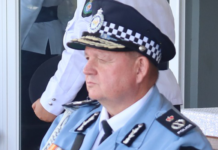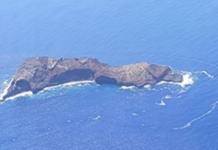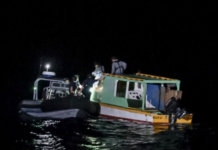Explainer – Significant scrutiny of Tonga’s political system, sparked in the early 1980s, rapidly transformed public daily conversation, replacing talk of plantations and fishing with intense political debate.
A new radio program known as Matalafo Laukai, hosted by veteran democracy campaigner ‘Akilisi Pōhiva from 1981 to 1984, was a primary catalyst. It prompted public debates about taxpayers’ rights to government transparency, accountability and good governance.
It taught residents to realise that even everyday purchases included sales taxes, which contributed to public expenditures, and it highlighted the importance of their involvement in political discussions.
Among the key factors that intensified this shift in political discourse were revelations of the royal family scandals during the period, including King Tupou IV’s controversial passport scheme, his compromised dealings with foreign investors; the collapse of Royal Tongan Airlines under King Tupou VI’s premiership; the controversial takeover of the country’s electricity company by the then-Crown Prince, George V; and Princess Pilolevu Tuita’s alleged misuse of satellite rights.
The traction these revelations gained was largely attributable to the investigative reporting of the Kele‘a newsletter. This publication was established to replace the Matalafo Laukai after the government banned it, and later, the Taimi ‘o Tonga newspaper.
It swiftly united scholars and leaders from all walks of life into a movement demanding democratic reform.
This led to the formation of the Pro-Democracy Movement (PDM) in August 1992, spearheaded by Pōhiva, which aimed to advance democratic reforms within Tonga’s constitutional monarchy.
The tireless efforts of these activists and scholars, supported by strong public backing, culminated in King George V’s agreement. He stated that he had long envisioned democracy as a solution to put an end to abuses of royal privilege.
Their consensus can be summarised in three key objectives:
(1) protecting the monarchy from allegations of financial mismanagement;
(2) preventing exploitation of the royal institution by opportunists; and
(3) ensuring transparent management of public funds through rigorous accountability measures.
Politics of Personal Animosity
Unfortunately, King George was overly optimistic in trusting Prime Minister Lord Sevele to implement the democratic transition smoothly
Lord Sevele’s opposition to the king’s proposed reforms was widely viewed through a political lens. Critics at the time, including prominent pro-democracy MPs, argued that his stance was fueled by a deep-seated animosity toward his rival, ‘Akilisi Pōhiva.
Further allegations suggested that Sevele feared a Pōhiva-led government would reopen investigations into two major controversies. The first was the 2009 sinking of the MV Princess Ashika during Sevele’s tenure, a ferry disaster that resulted in the deaths of 74 passengers and led to a public inquiry into governmental responsibility.
The second was the 2006 Nuku’alofa riots, which some opposition figures, including Dr Sitiveni Halapua accused Sevele’s government of indirectly inciting by delaying promised democratic reforms.

Democratic Hopes Effectively Denied
The democratic change failed to materialise mainly because the constitution drafted by the Constitutional and Electoral Commission (CEC), based on public consultations and submissions, was not used. Instead, PM Sevele went his own way and reportedly submitted an alternative proposal, now deemed the poorest written constitution among all Commonwealth countries.
The nobility-led government of Lord Tu’ivakanō, which first tested Tonga’s new democratic system in 2010, found significant flaws. In 2011, they hired Peter Pursglove to review the constitution. His review was unequivocal: the reforms had failed to establish genuine democracy. The constitution had been primarily drafted by Lord Dalgety—now one of the king’s law lords—and enacted under Lord Sevele’s government.
Pursglove said the constitution is poorly written, promotes secrecy, has compromised the role of the judiciary and parts of it may be illegal.
The report also says:
- Tonga’s 2010 constitution does not uphold democracy
- The Privy Council lacks any democratic composition or accountability
- The judiciary lacks accountability and transparency.
- Changes to the judiciary are inefficient, ineffective, unaffordable and possibly illegal.
- No public discussions were held regarding the reforms to the judiciary or why they were considered necessary.
- “The present Constitution of Tonga can lay claim to being the most poorly structured and drafted Constitution of any Country in the Commonwealth,” the report says.
One of Pursglove’s key recommendations was to transfer the appointment powers for both the Attorney-General and the Police Commissioner from the Privy Council to the Prime Minister and Cabinet.
Power Tussle With Monarchy
Since the democratic breakdown in 2010, Tonga’s five consecutive administrations have responded to the constitutional shortcomings in varying ways – ranging from pursuing the reform to royal appeasement – with some prime ministers exploiting governance flaws to curry royal favour while turning a blind eye to how their actions might implicate the monarchy in potential scandals.
Three Prime Ministers who wanted to fix the 2010 constitution to fulfil George V’s vision for a full democracy were Lord Tu‘ivakanō (2010 – 2014), ‘Akilisi Pōhiva (2014 – 2019) and Siaosi ‘Ofakivahafolau Sovaleni (2021 – 2024).
Yet two others—Dr Pōhiva Tu‘i‘onetoa (2019 – 2021) and Dr ‘Aisake Eke (2025)—opted to consolidate power through closer alignment with the King, operating within a constitution widely criticised as dysfunctional, undemocratic, and economically burdensome.
The Reformers – Benefiting King & Country
The following three leaders worked towards a stable, democratic system that would strengthen the nation and potentially protect the monarchy from future scandals.
1. Lord Tu‘ivakano (2010–2014): Confronting Constitutional Flaws
The nobility-led government of Lord Tu’ivakanō, which first tested Tonga’s new democratic system in 2010, found significant flaws. In 2011, they hired Peter Pursglove to review the constitution. His review was unequivocal: the reforms had failed to establish genuine democracy. The constitution had been primarily drafted by Lord Dalgety—now one of the king’s law lords—and enacted under Lord Sevele’s government.
2. ʻAkilisi Pohiva (2014–2019): Confronting Constitutional Flaws
As the first commoner to be elected Prime Minister of Tonga, Pōhiva vowed to continue Tu’ivakano’s reform efforts during the reign of King Tupou VI. He sought to implement Pursglove’s findings to strengthen democracy, but his tenure was cut short by his death in 2019, leaving his reform agenda unfinished. Before his death, his relationship with King Tupou VI had deteriorated. He complained that, despite his requests, the king regularly refused to meet with him as required by the constitution. He told Kaniva News that he believed the king was trying to reverse the executive powers that King George V had vowed to relinquish in 2010.
3. Siaosi Sovaleni (2021–2022): Challenging Royal Authority
Prime Minister Hu’akavameiliku took a stronger stance against expanding royal powers. He sued the king’s appointed Secretary for Foreign Affairs, arguing the position should remain under the PSC’s jurisdiction. He also rejected a letter from the king declaring that he had lost confidence in him, calling the move unconstitutional. His resistance led to his eventual ousting in a no-confidence motion. This came after the king reportedly forced the nobility MPs in Hu’akavameiliku’s cabinet to resign ahead of the ballot.

The Appeasers – Prioritising Short-Term Royal Favour
The following two prime ministers consolidated royal power at the expense of democratic governance, a move criticised as being economically burdensome and potentially harmful to the country’s and the monarchy’s long-term stability.
4. Pohiva Tu’i’onetoa (2019–2021): Halting Reforms, Restoring Royal Powers
Unlike his predecessors, Tu’i’onetoa did not prioritise constitutional reform. Instead, in 2020, he passed a law transferring the power to appoint the Secretary for Foreign Affairs from the Public Service Commission (PSC) back to the king, reversing a key democratic check on royal authority. However, Tu’i’onetoa did have one initiative that could be considered his contribution to the democratic reforms pursued by Tu’ivakanō and Pōhiva. When he was appointed Prime Minister, Tu’i’onetoa proposed during his first meeting with King Tupou VI that he be allowed to join the Privy Council. He aimed to update the king on government matters promptly. The king declined this proposal.
5. Dr ‘Aisake Eke (2025): Yielding to Royal Pressure
The current Prime Minister, ‘Aisake ‘Eke, has taken a different approach, bowing to royal pressure. He is being excessively naive in his dealings with the king, and the nomination of his current Cabinet Ministers appears to have been influenced by the monarchy as well. He is the initiator of His Majesty’s Diplomatic Service Bill. This legislation is a direct reversal of Tonga’s 2010 democratic reforms, as it removes foreign affairs from ministerial and parliamentary oversight, placing it under the monarchy’s sole, unchecked control. Critics condemn this not as modernisation, but as a regression to hereditary rule.







